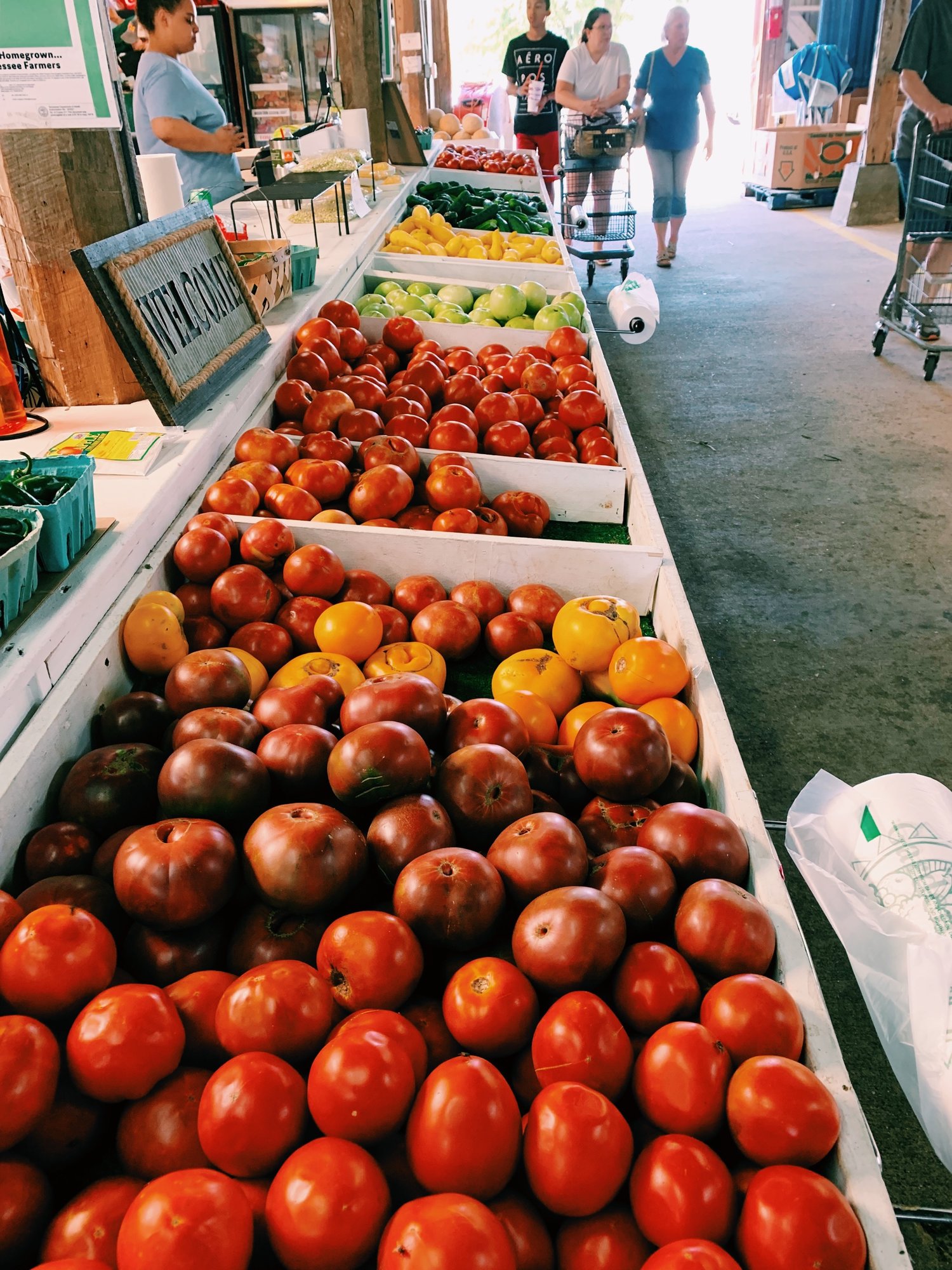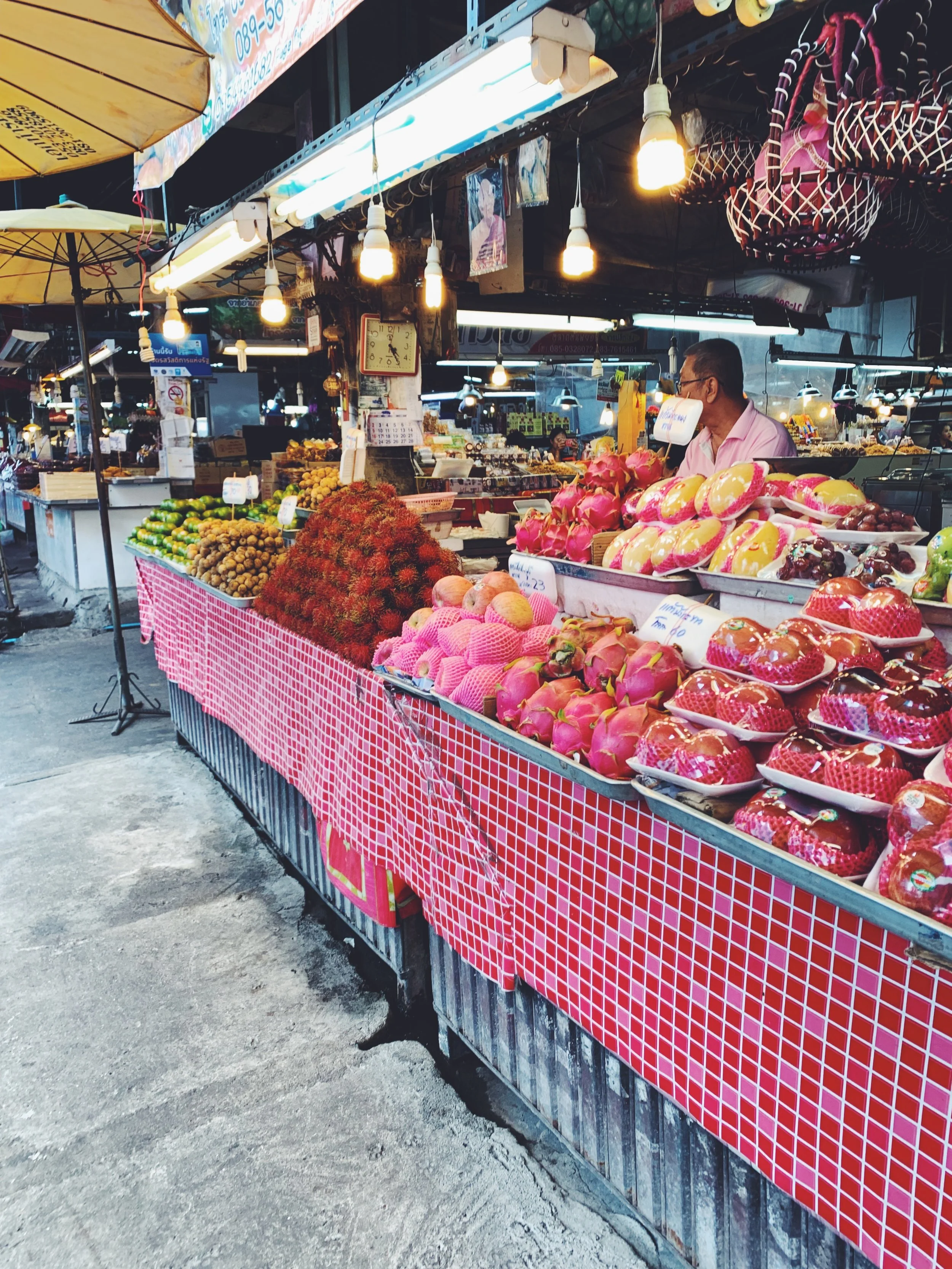Shopping Seasonally in the Summertime
Summer is by far the easiest time to eat all of the fresh and healthy foods. Whether you are grabbing some produce from the grocery store or shopping at a local farmers market, it’s hard to ignore the fact that foods are often much cheaper and tastier when they are in season. As seasons may differ depending on where you live, it can save you some money and add some flavor if you shop the foods that are in season. In addition, seasonal shopping decreases the environmental impact of the foods of shipping foods from other climates. Also, shopping seasonally is often healthier for you because the produce is actually picked in its peak ripeness, containing all of the nutrients that it can have. Plus, oftentimes the off-season produce is genetically modified in order to allow it to grow at any time of the year. And, if for no other reason at all, seasonal shopping helps you diversify the foods that you eat and makes the coming of a new season of produce all the more exciting. So, whether you are shopping at the grocery store or at a local market, here is a guide to shopping seasonally in these summer months!
What is in season this summer? (in Tennessee)
If you don’t live in Tennessee, a similar list of produce in season where you live can be found using this guide.
Fruits: apples, blackberries, blueberries, cantaloupes, cherries, grapes, honeydew melon, nectarines, peaches, plums, raspberries, strawberries, tomatoes, watermelons
Vegetables: beets, broccoli, cabbage, cantaloupes, cauliflower, carrots, collard greens, corn, cucumbers, eggplant, peas, herbs, kale, lettuce, beans, mushrooms, mustard greens, okra, onions, peppers, potatoes, spinach, sweet potatoes, squash, turnips
This information was found via the Pick Tennessee site which also lists all of the nearby farms that grow this produce.
Seasonal Grocery Store Shopping
Now, don’t get me wrong, I love love love shopping locally for produce. However, oftentimes, buying all local goods can be a little out of my price range. But, shopping seasonally in grocery stores has lots of benefits as well, especially for your wallet! Because the supply of these fruits and veggies is so bountiful when they are in season, the cost is so much lower than it would be any other time of year. If you’ve ever gotten blueberries in the middle of winter, you know that they cost a fortune for a tiny portion and are rotten in two days. However, in summertime when blueberries are actually in season, it really can save your wallet. Yes, there isn’t necessarily the same guarantee that the food that you are buying at a grocery store is as freshly picked as at a local market, but you at least can be pretty sure that your fruit didn’t travel halfway across the world to get to your plate. Plus, in season stuff doesn’t go bad so quickly (thank goodness)! However, unlike a local market, grocery stores will have a mix of in-season and off-season produce, so if trying to shop for only seasonal produce, be sure to go in with some ideas of the fruits and veggies you are looking for.
A lavash pizza topped with primarily local, seasonal produce
Shopping at Farmers Markets
Shopping seasonally is so simple at a local market because you don’t even have to think about what is in season, you know that it is just everything that is offered. Plus, there are huge economic and environmental benefits of shopping locally because you not only support small farms, but you also reduce the pollution that comes from transporting the produce thousands of miles, reducing the overall carbon footprint of the food. Also, shopping at a farmers market is the best way to go for the absolute freshest and most delicious fruits and vegetables you can find. While once-a-week markets may be at an inconvenient time for you (personally, I am rarely able to go), there are oftentimes places around town that sell local produce items multiple days a week such as the Agricenter Farmers Market, which is open the same spring to fall season as the other local markets but runs 6 days a week. And, these local markets that happen more often during the week tend to not run out of items as quickly as weekend markets do. The cost of items is definitely something to keep in mind when at these markets. It is definitely a trial and error process to see which stand gives you the best bang for your buck, but I would recommend walking a lap around the market before you buy any item to see which produce looks the most cost efficient. It is pretty likely that you will spend a bit more at a market than in the grocery store because of the transparency that comes from essentially purchasing the produce from the person who grew it as well as the guarantee that it is fresh and organic. Market shopping is often pretty overwhelming and it is pretty easy to impulse buy a bunch of produce, but it is best to just go in with a budget and stick to it! Keep in mind that the money you are spending here is also helping the local food economy flourish. :)
The Bring It Food Hub is a subscription within Memphis that gathers a wide range of locally grown produce from local farms into a subscription bag that is available for pick up once a week! I would totally recommend this if you want to have some local, seasonal produce and are willing to experiment with whatever is given to you. You can also add on things like local eggs, flowers, and bagels.


Nothing says summer quite like a perfectly ripe tomato or a fresh watermelon - soak up this season while it lasts! While local shopping always has lots of benefits, keep in mind that grocery stores are also solid options if trying to buy seasonal items as well. In my opinion, a combo of both grocery store and local shopping is the way to go to have fresh yet cost efficient summer fruits and vegetables. Summer produce specifically is very easy to cook because it is so flavorful without having to do much to it, so, make this your time to experiment with all of the good things this season has to offer! I will be experimenting with summer produce all summer long and updating instagram and the blog with all sorts of recipe ideas if ever in need of any ideas. :)








